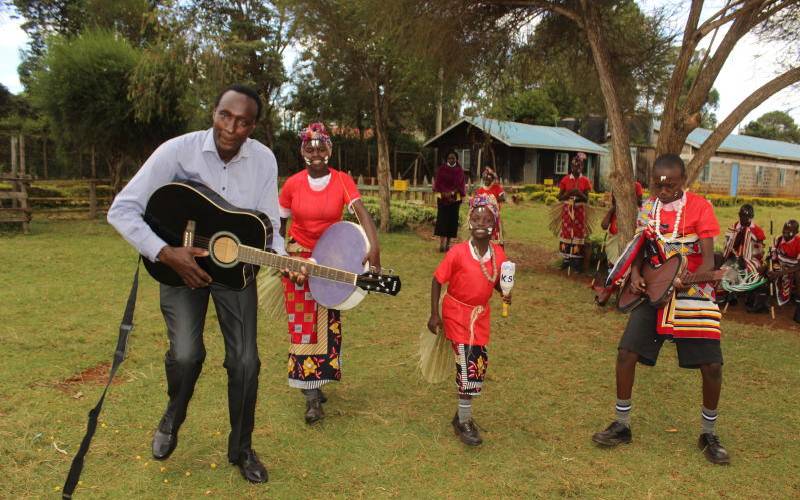×
The Standard e-Paper
Kenya’s Boldest Voice

Kapsabet Special school teacher Juxmcquinyx Koech dancing with his pupils on the school field on December 7, 2021. [Christopher Kipsang, Standard]
Two things stand out about Juxmcquinyx Koech: His unique name and passion for teaching.